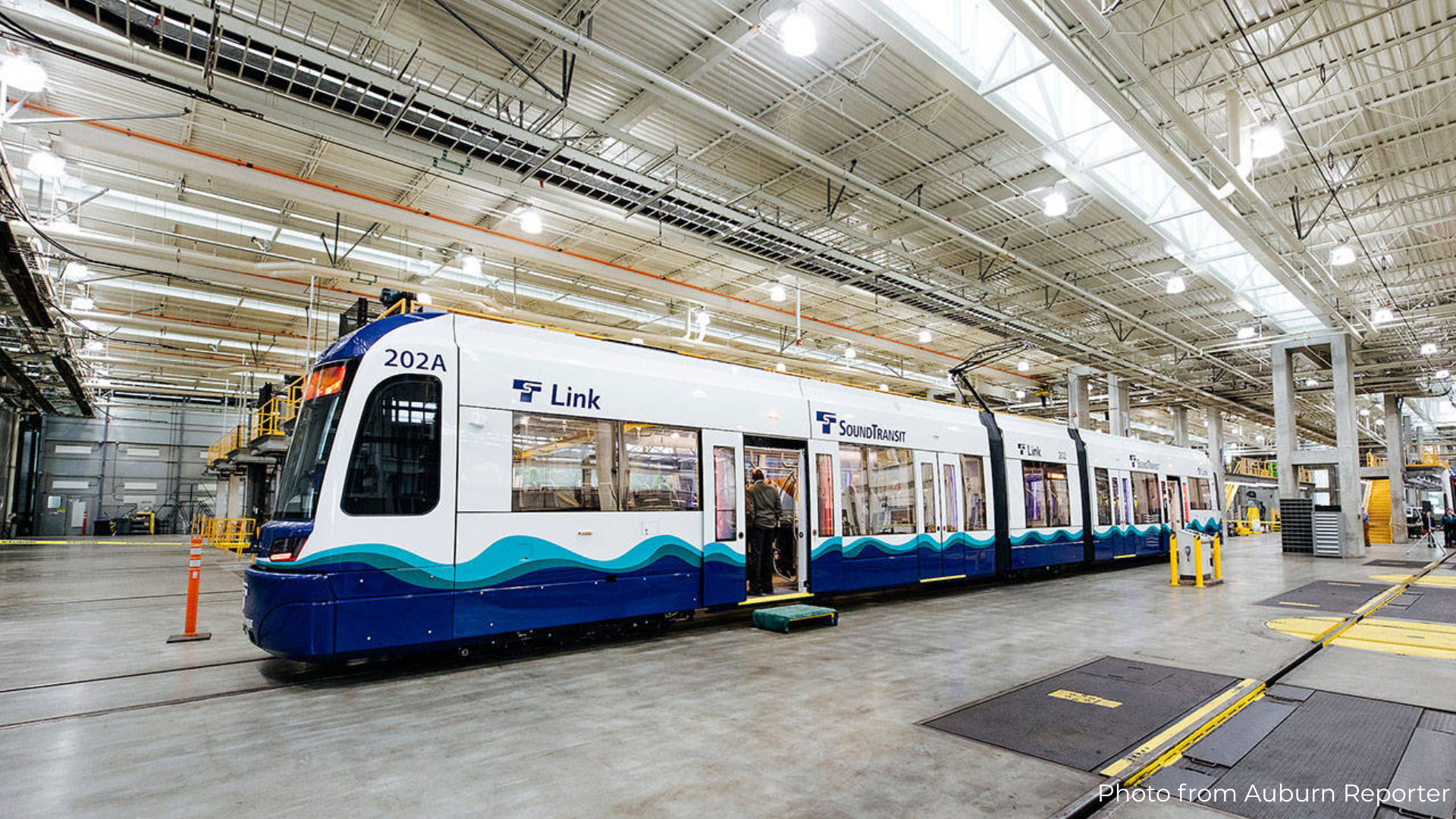Sound Transit officials have reported another set of massive cost overruns, estimated at $4.8 billion to $6.2 billion total, or a 70% increase over original costs. Sound Transit CEO, Peter Rogoff, said that “while these numbers are sobering, they’re not catastrophic.”
Sound Transit’s deputy CEO, Kimberly Farley, noted that the original estimates were “conceptual in nature” and “based on very limited design plans.” And these updated numbers could still get worse, as “projects advance to around 60% of the final design.”
Costs have now increased for the West Seattle and Ballard Link extensions, Tacoma Dome Link extension, and the Link Operations and Maintenance Facility in South King County. The breakdown can be found in Sound Transit’s January 5 memo and includes increases in rights-of-way, construction costs from design upgrades, contingencies, and other costs.

The agency notes that, “These challenges are also present in other local projects and other areas of the country where rapid population growth, urban development and economic growth have driven up costs of construction and real estate.” It is frustrating for the public when Sound Transit blames circumstances for which they pay people to forecast and develop mitigation. There seems to be more truth to their added statement that, “real estate development and cost pressures have continued to outpace the assumptions in our cost-estimating methodology.” The agency’s cost-estimating methodology is clearly not reliable.
Two points stand out.
First, in 2016, Sound Transit and its expert review panel “stress-tested” their budget with a series of sensitivity analyses. Those analyses took into account “variables like construction cost increases, low sales tax revenues, a recession occurring early in the ST3 program, high interest rates and increased inflation.” They found that “the package is relatively robust to tweaks in these factors, which is to say it’s capable of absorbing some shocks to the system.”
Second, the agency conducted a cost-benefit analysis that same year that showed the benefits of ST3 would not exceed anticipated costs until the year 2072. The analysis was flawed from the beginning, and needs to be re-done in light of COVID. It should be completed by more competent staff using updated methodology. According to the Seattle Times, a consultant will determine whether Sound Transit should use a different methodology moving forward – that review is scheduled for April.
The newly reported cost overruns are in addition to those reported in 2018 and 2019, including a $500 million overrun on Lynnwood Link, a $460 million cost overrun on Federal Way Link, and a $225 million overrun on East Link before construction could even begin.
Unfortunately for taxpayers, the agency has a long history of making big promises, securing taxing authority, and having those promises fall apart after getting voter approval. Sound Transit officials have rejected this assessment of their performance, insisting that the age of cost overruns is over:
- "A new administration came in and got things on track and we've been delivering projects on schedule and within budget ever since," said Sound Transit spokesman Geoff Patrick. Patrick said cost estimating grew much more rigorous with the Sound Transit 2 ballot measure in 2008, which is now halfway through its 15-year cycle and about 3 percent under budget.” – Sound Transit to KIRO 7, August 2016
- “I think the right way to judge what our performance is likely to be on Sound Transit 3 is what has our performance been on these recent projects, where we delivered U-Link ahead of schedule and under budget,” Rogoff said. “No one is looking to re-experience 1999 with ST3 dollars.” – Sound Transit to The Seattle Times, August 2016
Sound Transit’s positive outlook when officials mismanage projects and report outrageous cost overruns stands in contrast to the bleak future they have repeatedly painted when asked to give any money back to the public.
In past years, Sound Transit officials have described defeasing bonds to give car tab tax overcharges back to the public as a “nightmare scenario,” and have said that any repayment of tax overcharges would require “offsetting measures to ensure that our transit expansion remains whole.” In 2018, the agency was even willing to take $500 million reserved for state education funding to backfill any loss in car tab revenue.
The term “catastrophic" clearly means something different to Sound Transit, which consistently absorbs cost overruns and delays with optimism as long as they are initiated by the agency, rather than by legislation that requires giving any amount of money back to the public.
Lawmakers should take note of that. As the 2021 legislative session has begun, they should address Sound Transit’s car tab tax overcharges that have led to years of unchecked overpayments to the agency and eroded public trust. If Sound Transit officials and their boosters complain about the cost, or demand backfill from taxpayers, they should be ignored.






